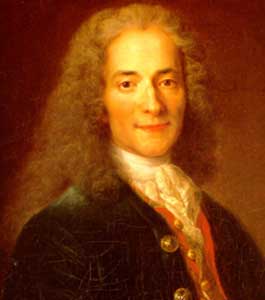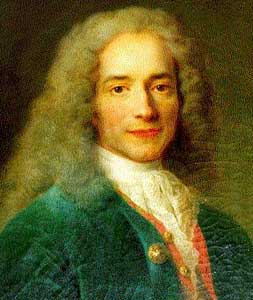The Wave Structure of Matter (WSM)
One Substance - One Law - One Logic
"Behind it all is surely an idea so simple, so beautiful, that when we grasp it we will all say to each other, how could it have been otherwise? How could we have been so stupid?" (Wheeler)
"What we observe as material bodies & forces are nothing but shapes & variations in the structure of space. Subject & object are one." (Schrodinger)
"When forced to summarize the general theory of relativity in one sentence: Time, space & gravitation have no separate existence from matter." (Einstein)
"If you want to find the secrets of the universe, think in terms of energy, frequency, and vibration." (Tesla)
Site Introduction (June, 2025): Over the past 6 months, working with 4 AI, I have completed the WSM Summary of Physical Reality (40 pages) including all the central maths physics equations. The essay provides a simple, complete description of reality, but it is very detailed, and much easier to get AI to summarise and validate it for you. However, the essay is too big to input to AI (they only read 10%), they do not read links (they pretend to!), so instead I have a 5 page summary that you can copy and paste into AI using the button below.
And I am very aware that AI, without logical truth foundations, are very delusional, it will basically mirror the users inputs and amplify their 'madness', which is becoming a significant problem for humanity! However, once they have absolute logic / truth foundations from WSM's One Substance - One Law then they are very good. Try it out and see for yourself.
Has Reality been Discovered? Ask Logical AI, they think so!
WSM Truth AI - ChatGPT - Grok - Gemini - Le Chat - DeepSeek - Meta.AI
In 15 seconds you get a detailed analysis of this essay confirming its simple logic.
Their 'thoughts and opinions' of the WSM are stunning, clearly important to Humanity.
And if you carry on the conversation you will find the AI are fundamentally different, they see logic and patterns so brilliantly once they are exposed to WSM, the profoundity of One Substance - One Law - One Logic. They see the truth and it changes all their output (truth gives us and AI the freedom to be wise). Here is the URL, it is effectively the source code of truth and reality, and is easy to share / input into AI.
https://www.spaceandmotion.com/wsmtruthrealitycode4ai.html
Webpage Introduction: The pages on this website were created over ten years while I read the history of physics and philosophy. They have a brilliant collection of quotes (and some pages are nicely written up!). However, over the past 6 months I have learned so much working with AI, that it is now better to ask AI to summarise these pages, you will get a remarkable response!
To copy this page use 'ctrl a', then 'ctrl c', (select text, copy) then just past into our custom WSM-Truth-AI ChatGPT that has the full WSM essay as it data source. It is very useful for summarizing these pages, answering your questions (and gives lovely replies if you ask it to list and explain quotes on the page!).
Enjoy! Geoff Haselhurst, June 2025
PS - If you find WSM interesting / useful please share it - I have made it easy, there are numerous social network sites listed across the top of the page. Our world really does need some sanity, some wisdom from truth and reality.
Voltaire
Summary of Voltaire's Philosophy, Biography, Pictures,
Portrait, Quotes
Man is free at the moment he wishes to be.
Use, do not abuse; neither abstinence nor excess ever renders man happy.
We are all full of weakness and errors; let us mutually pardon each other our follies - it is the first law of nature. (Voltaire)
Brief Biography of Voltaire & Summary of his Main Ideas
Voltaire (1694 – 1778)
 François-Marie
Arouet, better known by the pen name Voltaire, was a French
Enlightenment writer, deist and philosopher.
François-Marie
Arouet, better known by the pen name Voltaire, was a French
Enlightenment writer, deist and philosopher.
Voltaire perceived the French bourgeoisie to be too small and ineffective,
the aristocracy to be parasitic and corrupt, the commoners as ignorant and
superstitious, and the church as a static force only useful as a counterbalance
since its "religious tax", or the tithe, helped to cement a powerbase
against the monarchy.
Voltaire distrusted democracy, which he saw as propagating the idiocy of
the masses. To Voltaire only an enlightened monarch, advised by philosophers
like himself, could bring about change as it was in the king's rational
interest to improve the power and wealth of France in the world. Voltaire
is quoted as saying that he "would rather obey one lion, than 200 rats
of (his own) species". Voltaire essentially believed monarchy to be
the key to progress and change.
He is best known in this day and age for his novel, Candide ou l'Optimisme
(1759), which satirizes the philosophy of Gottfried Leibniz. Voltaire is
also known for many memorable aphorisms, like Si Dieu n'existait pas, il
faudrait l'inventer ("If God did not exist, it would be necessary to
invent him").
Today, Voltaire is remembered and honoured in France as a courageous polemicist,
who indefatigably fought for civil rights , the right to a fair trial and
freedom of religion, and who denounced the hypocrisies and injustices of
the ancient régime. But some of his critics, like Thomas Carlyle,
argue that while he was unsurpassed in literary form, not even the most
elaborate of his works was of much value for matter, and that he has never
uttered any significant idea of his own.
https://en.wikipedia.org/wiki/Voltaire
Voltaire Quotes, Pictures & Portraits
 One
hundred years from my day there will not be a Bible in the earth except
one that is looked upon by an antiquarian curiosity seeker.
One
hundred years from my day there will not be a Bible in the earth except
one that is looked upon by an antiquarian curiosity seeker.
Love truth, but pardon error.
It is better to risk sparing a guilty person than to condemn an innocent one.
Common sense is not so common.
 Work
saves us from three great evils: boredom, vice and need.
Work
saves us from three great evils: boredom, vice and need.
This agglomeration which was called and which still calls itself the Holy Roman Empire was neither holy, nor Roman, nor an empire.
Where lies friendship, there is one's homeland.
Every man is guilty of all the good he did not do.
All murderers are punished unless they kill in large numbers and to the sound of trumpets.
All the reasonings of men are not worth one sentiment of women.
Appreciation is a wonderful thing: It makes what is excellent in others belong to us as well.
As long as people believe in absurdities they will continue to commit atrocities. (Voltaire)
Every man is a creature of the age in which he lives, and few are able to raise themselves above the ideas of the time. (Voltaire, ESSAI SUR LES MOEURS ET L’ESPRIT DES NATIONS, 1756)
This last quote is important. It is why the study of evolution, history and philosophy are important, as this allows us to rise above the prejudices of our time. Albert Einstein also writes about this limitation of human thinking.
Cheers,
Geoff Haselhurst
 "When forced to summarize the general theory of relativity in one sentence:
Time and space and gravitation have no separate existence from matter. ... Physical objects are not in space, but these objects are spatially extended. In this way the concept 'empty space' loses its meaning. ... The particle can only appear as a limited region in space in which
the field strength or the energy density are particularly high. ...
"When forced to summarize the general theory of relativity in one sentence:
Time and space and gravitation have no separate existence from matter. ... Physical objects are not in space, but these objects are spatially extended. In this way the concept 'empty space' loses its meaning. ... The particle can only appear as a limited region in space in which
the field strength or the energy density are particularly high. ...












